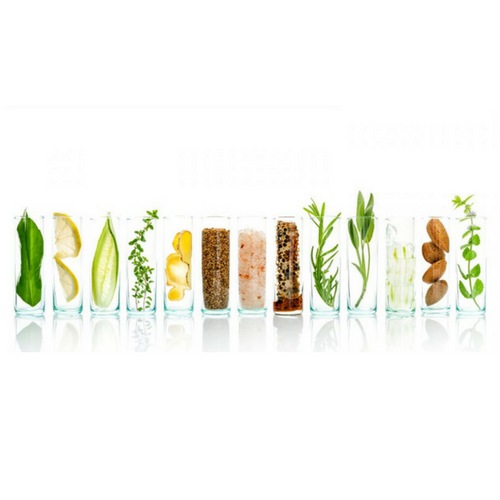
key pregnancy nutrition
We thought we would share this useful Blog post published by Little Butterfly London...
What a woman eats and drinks during pregnancy is her baby’s main source of nourishment. So, experts recommend that a mother-to-be choose a variety of healthy foods and beverages to provide the important nutrients a baby needs for growth and development.
A pregnant woman needs more calcium, folic acid, iron and protein than a woman who is not expecting, according to the American College of Obstetricians and Gynecologists (ACOG).
Folic acid, also known as folate when the nutrient is found in foods, is a B vitamin that is crucial in helping to prevent birth defects in the baby’s brain and spinal cord, known as neural tube defects.
foods to eat
During pregnancy, the goal is to be eating nutritious foods most of the time. To maximize prenatal nutrition, try to emphasise the following five food groups: fruits, vegetables, lean protein, whole grains and dairy products.
Fruits and vegetables: Pregnant women should focus on fruits and vegetables, particularly during the second and third trimesters. Get between five and ten tennis ball-size servings of produce every day. These colorful foods are low in calories and filled with fiber, vitamins and minerals.
Lean protein: Pregnant women should include good protein sources at every meal to support the baby’s growth. Protein-rich foods include meat, poultry, fish, eggs, beans, tofu, cheese, milk, nuts and seeds.
Whole grains: These foods are an important source of energy in the diet, and they also provide fiber, iron and B-vitamins. At least half of a pregnant woman’s carbohydrate choices each day should come from whole grains, such as oatmeal, whole-wheat pasta or breads and brown rice.
Dairy: Aim for 3 to 4 servings of dairy foods a day. Dairy foods, such as milk, yogurt and cheese are good dietary sources of calcium, protein and vitamin D.
In addition to a healthy diet, pregnant women also need to take a daily prenatal vitamin to obtain some of the nutrients that are hard to get from foods alone, such as folic acid and iron.
foods to avoid
Alcohol: Avoid alcohol during pregnancy. Alcohol in the mother’s blood can pass directly to the baby through the umbilical cord. Heavy use of alcohol during pregnancy has been linked with fetal alcohol spectrum disorders, a group of conditions that can include physical problems, as well as learning and behavioral difficulties in babies and children, according to the Centers for Disease Control and Prevention (CDC).
Fish with high levels of mercury: Seafood such as swordfish, shark, king mackerel, marlin, orange roughy and tilefish are high in levels of methyl mercury, according to the Academy of Nutrition and Dietetics, and should be avoided during pregnancy. Methyl mercury is a toxic chemical that can pass through the placenta and can be harmful to an unborn baby’s developing brain, kidneys and nervous system.
Unpasteurized food: According to the USDA, pregnant women are at high risk for getting sick from two different types of food poisoning: listeriosis, caused by the Listeria bacteria, and toxoplasmosis, an infection caused by a parasite.
Listeria infection may cause miscarriage, stillbirth, preterm labor, and illness or death in newborns. To avoid listeriosis, the USDA recommends avoiding the following foods during pregnancy:
Unpasteurized (raw) milk and foods made from it, such as feta, Brie, Camembert, blue-veined cheeses, queso blanco and queso fresco. Pasteurization involves heating a product to a high temperature to kill harmful bacteria.
Hot dogs, luncheon meats and cold cuts unless heated to steaming hot before eating to kill any bacteria.
Store-bought deli salads, such as ham salad, chicken salad, tuna salad and seafood salad.
Unpasteurized refrigerated meat spreads or pates.
Raw meat: A mother can pass a Toxoplasma infection on to her baby, which can cause problems such as blindness and mental disability later in life, reports the CDC. To prevent toxoplasmosis, the USDA recommends avoiding the following foods during pregnancy:
Rare, raw or undercooked meats and poultry.
Raw fish, such as sushi, sashimi, ceviches and carpaccio.
Raw and undercooked shellfish, such as clams, mussels, oysters and scallops.
Some foods may increase a pregnant woman’s risk for other types of food poisoning, including illness caused by salmonella and E. colibacteria. Foodsafety.gov lists these foods to avoid during pregnancy, and why they pose a threat:
Raw or undercooked eggs, such as soft-cooked, runny or poached eggs.
Foods containing undercooked eggs, such as raw cookie dough or cake batter, tiramisu, chocolate mousse, homemade ice cream, homemade eggnog, Hollandaise sauce.
Raw or undercooked sprouts, such as alfalfa, clover.
Unpasteurized juice or cider.
Source: www.livescience.com
Share

